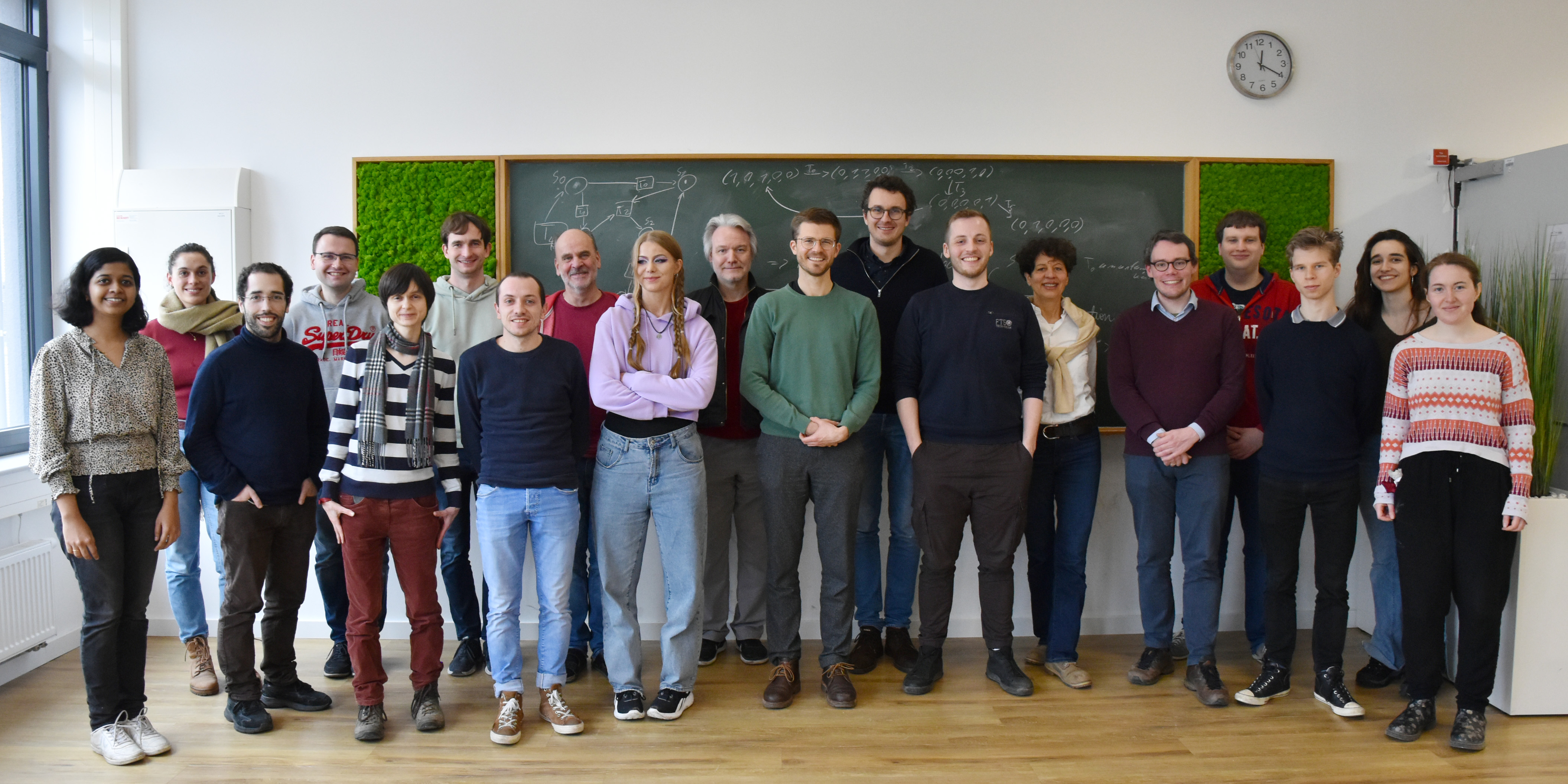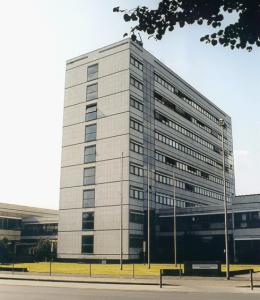BiMs: Bielefeld-Münster Seminar
on
Groups, Geometry and Topology
Friday, February 9, 2024



All lectures take place in SRZ 216/217, Orleans-Ring 12, 48149 Münster.
Organizers: Barbara Baumeister, Kai-Uwe Bux, Linus Kramer
Talks:
10:00 Philip MöllerProfinite rigidity of crystallographic groups
Abstract: A group acting faithfully and cocompactly on Euclidean space is called a crystallographic group. This class of groups has been studied throughout the last century and the low-dimensional examples have been classified. In this talk I want to talk about the question of profinite rigidity for them. That means if G is a crystallographic group and H an arbitrary finitely generated residually finite group and G and H have the same set of isomorphism classes of finite quotients, is G isomorphic to H?
11:00 Coffee break
11:30 Leonie Mühlherr
Fundamental polytopes on finite metric spaces
Abstract: We can associate a polytope to a metric on a finite set of points, the so-called fundamental polytope. The question of classifying metric spaces by the combinatorial porperties of their fundamental polytopes has been posed by Vershik (2015). It has been studied for special types of metrics (generic, tree-like) in recent years. This talk gives an introduction to the basic concepts, an overview of other classification types and introduces a hyperplane arrangement dividing the metric cone according to the combinatorial type of the polytope.
12:30 Lunch break
14:00 José Quintanilha
Sigma-invariants for topological groups
Abstract: The features of a group being finitely generated or finitely presented are well-known to be, respectively, the n = 1 and n = 2 cases of property Fn: a group G is said to be of type Fn if it acts freely and co-compactly on an (n − 1)-connected CW-complex. In the 1980’s, Bieri, Neumann, Strebel and Renz developed a family of invariants Σn(G), which are subsets of Hom(G, ℝ) refining property Fn, in the sense that G is of type Fn if and only if 0 ∈ Σn(G). One of the most remarkable results of the theory reveals that, given a subgroup N ⊴ G with G/N abelian, the invariant Σn(G) governs whether property Fn transfers from G to N.
If G is a locally compact Hausdorff topological group, one may consider the "compactness properties" Cn introduced by Abels and Tiemeyer, whose definition is inspired by the so-called "Brown's criterion", and specializes to Fn in the discrete case. In an ongoing project, Kai-Uwe Bux, Ilaria Castellano, Elisa Hartmann, and myself have extended properties Cn to invariants Σntop(G), which coincide with the usual Σn(G) if G is discrete. We have proved analogues of various classical results in this broader setting, one of our most recent accomplishments being a generalization of the aforementioned theorem, which clarifies when property Cn transfers from G to a closed co-abelian normal subgroup N.
In my talk, I will sketch some of the ideas that enter the proof of this theorem, after giving a brief introduction to the classical theory of Sigma-invariants and explaining our generalized definition.
15:00 Coffee break
15:30 Sira Busch
The Moufang property in polar spaces
In my talk I would like to explain what a polar space is and what it means for a polar space to have the Moufang property. Roughly speaking a polar space has the Moufang property, if many interesting automorphisms exist. Jacques Tits already showed the Moufang property for polar spaces. We found an alternative, geometrical proof for that result by directly constructing the needed automorphisms. We showed that a polar space is Moufang iff its residues are Moufang. With this geometric approach it is possible to see the fixpoint structure of the group of these automorphisms in more detail. Joint work with Hendrik Van Maldeghem.